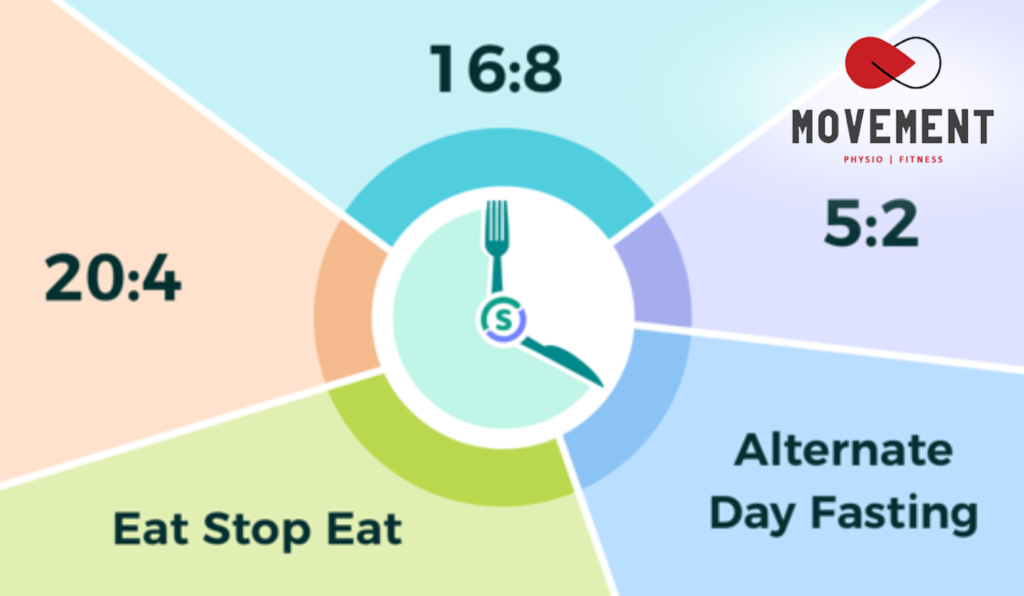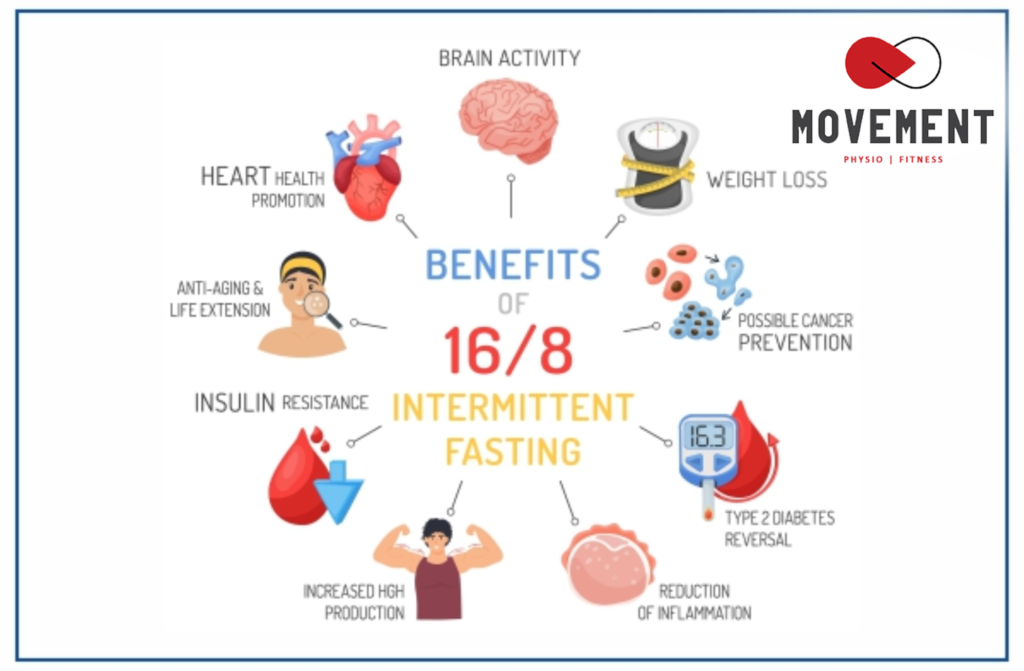Weight loss methods have changed a lot over time, attracting everyone’s attention. People have tried everything from old herbal recipes to today’s keto diets to lose extra weight. Among all these ways, one method, intermittent fasting, has become very popular. It’s simple and has been around for a long time. While many people follow the keto diet and other plans, there’s something special about intermittent fasting that makes it really appealing and worth exploring more.
Have you ever wondered why intermittent fasting (IF) is taking the health and fitness world by storm? What if the secret to losing weight and boosting your brain and heart health lay in the timing of your meals, not just their content?
Dive into the world of intermittent fasting
Intermittent fasting (IF) isn’t just a fleeting trend; it’s a global movement. Individuals everywhere turn to IF to shed pounds, enhance their well-being, and simplify their daily lives. But with various fasting methods, how do you pinpoint the perfect one?
What exactly is intermittent fasting?
Imagine eating not by the clock but in harmony with your body’s natural rhythms. Intermittent fasting isn’t about restricting what you eat but when you eat. It’s an eating pattern, not a traditional diet, that cycles between periods of fasting and eating. Isn’t it fascinating that this approach aligns more with how our ancestors lived than the modern habit of constant grazing?

Historical roots meet modern science
Our hunter-gatherer ancestors didn’t have the luxury of constant food availability, so our bodies are inherently designed to function without food for extended periods. This isn’t just about tradition; numerous studies validate that intermittent fasting can profoundly influence your body and brain, potentially even extending your lifespan. How’s that for tapping into our evolutionary advantage?
Choosing your intermittent fasting path
Intermittent fasting involves dividing your day or week into times when you eat and times when you fast, either eating very little or nothing at all during the fasting times.
Here are the most common approaches:
- The 16/8 method, or Leangains protocol: This method skips breakfast and limits eating to an 8-hour window, such as from 1 p.m. to 9 p.m., followed by 16 hours of fasting.
- Eat-Stop-Eat: This involves a full 24-hour fast once or twice a week, like going from dinner one evening to dinner the next.
- The 5:2 diet: On this plan, you eat only 500–600 calories on two non-consecutive days each week, but eat normally on the other five days.
- One Meal A Day (OMAD): Individuals accustomed to Intermittent Fasting (IF) often embrace the OMAD approach, which permits them to enjoy their daily meal within a two-hour window each evening, followed by a 22-hour fasting period.
These methods help with weight loss by reducing calorie intake, as long as you don’t overeat during your meals.
The 16/8 method is often considered the easiest and most sustainable, making it a popular choice for many.

The simplicity of the 16/8 method
Many find the 16/8 method to be the most straightforward gateway into the world of IF. It’s straightforward:
- Skip breakfast.
- Eat your meals within an eight-hour window.
- Fast until the next day.
It’s not just about weight loss; it’s about giving your body a break, allowing it to tap into stored fat reserves and kickstart repair processes. Could this be the lifestyle tweak you’ve been searching for to feel and look better?
The remarkable effects of intermittent fasting on your body: A cellular transformation
Have you ever considered what happens inside your body when you embrace intermittent fasting? It’s like flipping a switch that activates a series of fascinating cellular and hormonal changes. But what exactly goes on beneath the surface when you start fasting?
A deep dive into your body’s inner workings
You’re not just giving your digestive system a break when you fast. You’re embarking on a journey of cellular rejuvenation and hormonal balance. But how does this journey unfold, and what are its benefits?
Unleashing the power of hormones
Imagine your body as a high-tech factory where hormones are the workers, orchestrating everything from fat burning to muscle building. When you fast, you tell these workers to switch gears and focus on tasks they often overlook when food is constantly available.
- Human growth hormone (HGH): Did you know fasting can boost your HGH levels up to five times? This surge can accelerate fat loss and muscle gain.
- Insulin sensitivity: Fasting acts like a reset button, improving your body’s response to insulin. With lower insulin levels, your body can access and burn stored fat more efficiently.
- Cell Repair: During fasting, your cells start self-repair mechanisms. One key process is autophagy, in which cells break down and clear out old or malfunctioning proteins that have accumulated.
- Genetic Changes: Fasting leads to adjustments in how certain genes that are linked to lifespan and disease UI function.
An exceptionally effective weight loss strategy
Intermittent fasting is a popular choice for those seeking weight loss, and research has backed it as a compelling method. It simplifies eating patterns, potentially leading to a natural decrease in calorie consumption. Moreover, it optimizes hormone levels to support weight loss, enhancing growth hormone production and boosting norepinephrine, a hormone that aids in fat burning. These hormonal adjustments can boost your metabolism by 3.6–14%, amplifying calorie burn.
This dual approach—consuming fewer calories while increasing calorie expenditure—makes intermittent fasting a potent weight-loss strategy. The research underscores its effectiveness, with studies indicating potential weight reductions of 3–8% over 3–24 weeks and notable decreases in waist circumference, shedding light on its ability to target harmful belly fat.
A 2011 study suggests intermittent fasting could preserve muscle mass more effectively than continuous calorie restriction. Yet, the key to its success is a net reduction in calorie intake; excessive eating during non-fasting periods can negate its benefits.

Beyond weight loss: Broad health advantages
Intermittent fasting’s impact extends beyond weight loss, offering broad health benefits proven in various studies:
- It can significantly reduce insulin resistance, potentially lowering the risk of type 2 diabetes by decreasing blood sugar and fasting insulin levels.
- Studies indicate a reduction in inflammation markers, combating chronic disease risks.
- It may improve heart health by reducing detrimental LDL cholesterol and blood triglycerides, along with other heart disease risk factors.
- Preliminary animal research suggests potential in cancer prevention (22Trusted Source).
- Brain health benefits include increased BDNF levels and potentially enhanced defense against Alzheimer’s disease.
- Early studies in rats show a potential for lifespan extension, with fasted rats living significantly longer.
While promising, it’s important to note that many of these studies are preliminary, and more high-quality human research is needed to confirm these benefits.
Simplifying your health journey with intermittent fasting
Have you ever considered simplifying your meal planning, which could revolutionize your health? That’s where intermittent fasting shines, offering a minimalist approach to nutrition that could be your key to a healthier lifestyle.
Navigating intermittent fasting: Who should think twice?
Not everyone should jump on the intermittent fasting bandwagon. If you’re underweight or have battled eating disorders, fasting could be risky without professional guidance.
Is intermittent fasting suitable for women?
The jury is still out on whether intermittent fasting benefits women and men equally. A 2005 study revealed that while fasting boosted insulin sensitivity in men, it had the opposite effect on women, potentially complicating blood sugar management.
There are stories of women experiencing changes in their menstrual cycles when they start fasting, with normalcy returning once they revert to their usual eating habits. Yet, for women dealing with obesity or PCOS, intermittent fasting has shown promise in enhancing fertility and improving metabolic health markers.
Athletic or normal-weight women might want to approach intermittent fasting with caution, as some research suggests it could impact reproductive health and performance, likely due to inadequate calorie consumption.
So, should women embrace intermittent fasting? The answer isn’t clear-cut. With limited and mixed research, particularly regarding long-term effects, women considering intermittent fasting should proceed with care. Easing into fasting and halting if issues like amenorrhea arise is wise.
Consult with a nutritionist at Movement to help you decide if intermittent fasting aligns with your health goals.
Navigating the waves of intermittent fasting: Safety and side effects
Brace yourself for hunger—it’s the most common sidekick of this dietary voyage. You might also encounter bouts of weakness or feel like your brain isn’t firing on all cylinders. But don’t fret; these are often just signs of your body tuning into its new rhythm.
However, if intermittent fasting piques your interest and you’re juggling a health condition, a chat with your doctor is in order. This step is crucial, especially if you:
- Battle with diabetes or blood sugar swings.
- Navigate the ebbs and flows of low blood pressure.
- Rely on prescription medications.
- Are on the lighter side of the scale.
- Have wrestled with eating disorders.
- Are trying to light the spark of conception.
- Have faced the silent stretch of amenorrhea.
- Are nurturing a new life or breastfeeding.
Yet, amidst these cautions, let’s not lose sight of the bigger picture: Intermittent fasting holds a stellar safety record. For those in good health and nutritionally balanced, taking a break from eating is like a gentle wave—it might rock the boat, but it’s unlikely to capsize it.
The ins and outs of fasting: Addressing your curiosities
Let’s dive into some of the most pressing questions about intermittent fasting:
- Can I stay hydrated while fasting?
Absolutely! During fasting, water, coffee, tea, and other non-caloric beverages are your allies. But remember, adding sugar is a no-go. A general rule of thumb is not to consume any drinks that are above 10 calories.
- Is skipping breakfast really okay?
Contrary to the adage that breakfast is the most critical meal, skipping it isn’t inherently unhealthy. It’s what you eat during the day that counts. Could rethinking breakfast unlock new health benefits for you?
Have you ever considered where the word “Breakfast” comes from? It comes from “Breaking Fast”, which means that, yes, it’s the first meal after fasting for a while, and it’s important that you make it a good one. but it doesn’t mean it has to be in the morning; that part is something we started believing mostly due to cornflake companies. - What about supplements and exercise?
You can take supplements while fasting, but some might work better with meals. And are you working out? Absolutely—fasted workouts can have unique benefits.
- Concerned about muscle loss or metabolism slowdown?
Every approach to weight loss has the potential to lead to muscle loss, underscoring the importance of strength training and maintaining high protein levels in your diet. Interestingly, a 2011 study found that intermittent fasting is less likely to result in muscle loss compared to traditional calorie restriction.
Earlier research indicates that short-term fasting can increase metabolic rate. Yet, fasting for three days or longer might slow down metabolism (36Trusted Source).
- Is fasting suitable for kids?
Children have different nutritional needs, so fasting is only sometimes advised for the younger crowd.
Starting your intermittent fasting journey
You may have already experienced unintentional fasting. If you’ve skipped meals due to a busy schedule, you’ve gotten a taste of what structured fasting feels like.
Whether it’s the 16/8 method, Eat-Stop-Eat, or the 5:2 diet, a world of fasting styles awaits you. Which method will resonate with your lifestyle and goals?
Unlocking health: Is intermittent fasting your key?
Intermittent fasting isn’t a must-do; it’s just one of several lifestyle choices that could enhance your health. Remember, prioritizing a diet of whole foods, staying active, and getting ample sleep remains paramount.
Not keen on the idea of fasting? No worries. Feel free to skip this advice and stick with what’s working for you.
When it comes to nutrition, the universal solution is elusive. The optimal diet is the one that fits seamlessly into your life over the long haul.
Intermittent fasting works wonders for some and less so for others. The only way to know if you’re in the former group is to try it.
If fasting feels right and you can maintain it, it might just be the powerful ally you need in your weight loss and health journey.

Add your first comment to this post